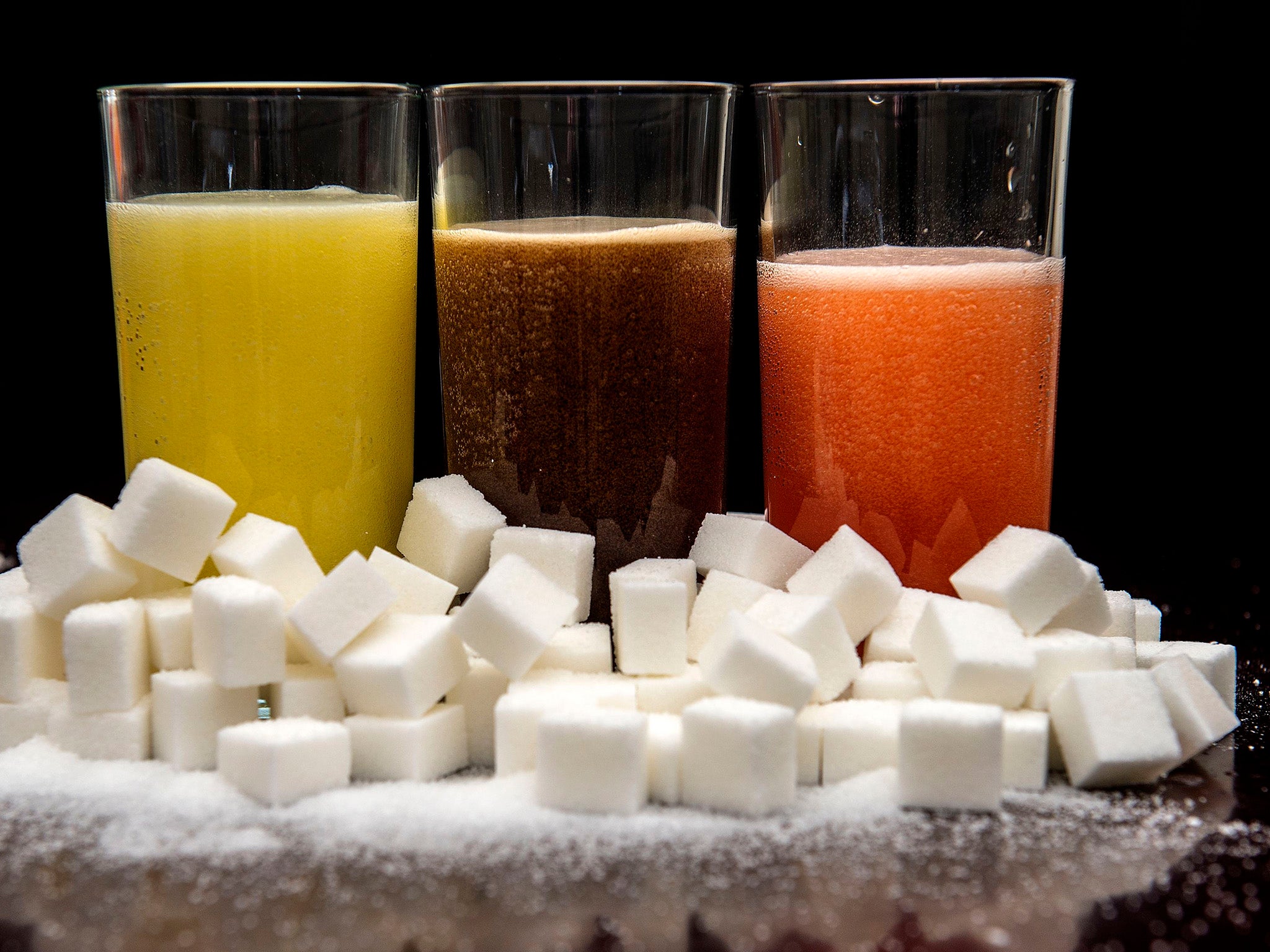Sugar tax on soft drinks could prevent tens of thousands from becoming obese, says new study
'On its own a soft drinks levy cannot solve the obesity crisis, but we should not underestimate the importance of this step, both for the UK and as a case study for other parts of the world,' says one researcher

Your support helps us to tell the story
From reproductive rights to climate change to Big Tech, The Independent is on the ground when the story is developing. Whether it's investigating the financials of Elon Musk's pro-Trump PAC or producing our latest documentary, 'The A Word', which shines a light on the American women fighting for reproductive rights, we know how important it is to parse out the facts from the messaging.
At such a critical moment in US history, we need reporters on the ground. Your donation allows us to keep sending journalists to speak to both sides of the story.
The Independent is trusted by Americans across the entire political spectrum. And unlike many other quality news outlets, we choose not to lock Americans out of our reporting and analysis with paywalls. We believe quality journalism should be available to everyone, paid for by those who can afford it.
Your support makes all the difference.A sugar tax on soft drinks could result in thousands fewer British adults and children becoming obese, research suggests.
Experts said the proposed levy, due to be introduced in April 2018, was likely to have a “significant” impact on health and obesity rates.
The industry tax relates to the sugar content of drinks, with a higher amount charged for the most sugary beverages.
Researchers modelled three ways that the soft drinks industry might respond to the levy - reducing the sugar content of drinks, raising the price of sugary drinks, and encouraging customers to switch to drinks containing less sugar.
For each scenario they estimated the likely effect on rates of obesity, diabetes and tooth decay.
The study found that a 30 per cent reduction in the sugar content of all high-sugar drinks - a step already taken by some manufacturers - and a 15 per cent reduction for moderately sugary drinks could result in 144,000 fewer adults and children being obese.
Such a step would also lead to 19,000 fewer new cases of Type 2 diabetes each year, and a yearly reduction of 269,000 teeth affected by decay.
Passing on half of the cost of the levy to consumers, leading to a 20 per cent increase in the price of high and mid-sugar drinks, was predicted to reduce the number of obese adults and children by 81,600, cases of diabetes by 10,800, and decaying teeth by 149,000.
Dr Adam Briggs, from Oxford University, who led the research published in The Lancet Public Health journal, said: “Our study provides the first estimates of the likely health impact of the UK soft drinks levy.
“The good news is that our study suggests that all of the most likely industry responses to the tax including reducing sugar content of soft drinks, raising prices of high-sugar drinks and increasing the market share of low-sugar drinks have the potential to improve health by reducing rates of obesity, diabetes and tooth decay.
“The extent of the health benefits of the tax will depend on industry's response.
“We must therefore be vigilant to ensure the food industry acts to remove sugar from soft drinks, and that where the tax is passed on to consumers it increases the price of targeted products only - drinks with high levels of sugar.”
Oxford colleague and co-author Professor Susan Jebb said: “In spite of the uncertainties, the direction of the effect is clear; this levy will have a positive impact, especially on children's health.
“Of course, on its own a soft drinks levy cannot solve the obesity crisis, but we should not underestimate the importance of this step, both for the UK and as a case study for other parts of the world.”
Professor Richard Tiffin, another member of the team from the University of Reading, said it was significant that children would benefit most.
He added: “Childhood obesity is a ticking time bomb and we must now turn our attention to other measures that will bring about the step change in diet that is necessary to truly tackle this issue.
“We need a much better understanding of the diverse and complex reasons people choose a poor diet.”
Nutrition expert Professor Tom Sanders, from King's College London, said he found some of the claims made by researchers “hard to swallow”.
He pointed out that according to the study findings, the proposed tax would reduce energy intake by five calories per person per day, or a third of a teaspoonful of sugar.
“This is a very small reduction in energy intake - equivalent to the amount of energy expended by one minute of brisk walking,” he said.
Other experts called the research “important” and “encouraging”.
Professor Neena Modi, president of the Royal College of Paediatrics and Child Health (RCPCH), said: “Children stand to benefit the most, so this study is a clarion call to industry to fulfil their moral obligations to promote child wellbeing.
“We also reiterate the importance of evaluating the true impact of the sugar tax, once it is introduced, so that the UK can provide much needed evidence to other countries that are considering emulating this potentially powerful public health intervention.”
A Government spokesman said: “This is independent confirmation that the soft drinks industry levy, a key part of our world-leading Childhood Obesity Plan, will be a potent tool in the fight against childhood obesity.
“Not only that, it will help save our children's teeth and cut rates of type 2 diabetes.”
Press Association
Join our commenting forum
Join thought-provoking conversations, follow other Independent readers and see their replies
Comments